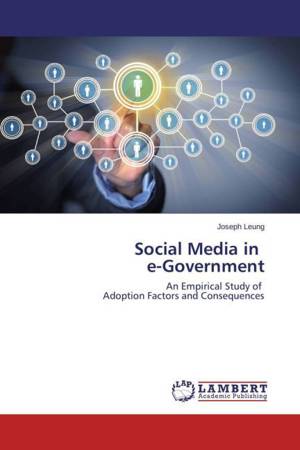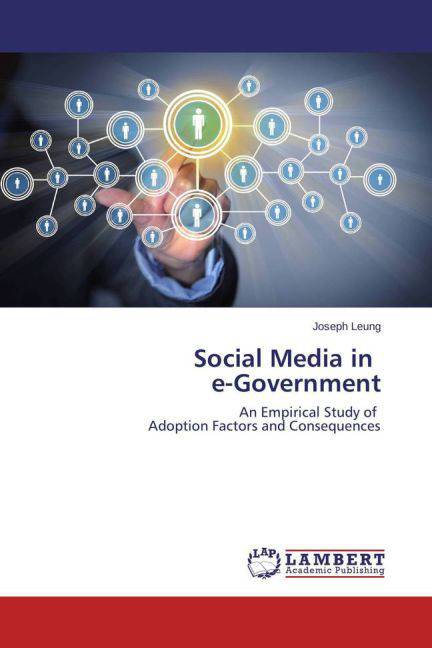
- Afhalen na 1 uur in een winkel met voorraad
- Gratis thuislevering in België vanaf € 30
- Ruim aanbod met 7 miljoen producten
- Afhalen na 1 uur in een winkel met voorraad
- Gratis thuislevering in België vanaf € 30
- Ruim aanbod met 7 miljoen producten
Zoeken
Social Media in e-Government
An Empirical Study of Adoption Factors and Consequences
Joseph Leung
Paperback | Engels
€ 42,95
+ 85 punten
Omschrijving
Information and communications technology (ICT) has been offering enormous opportunities for individuals, business and society to enhance efficiency. There is increasing attention paid to the adoption and use of ICT in various disciplines from researchers, for example in e-Government. This research will be examining the diffusion of ICT in e-Government, with respect to the typical stages from adoption to post-adoption in analysing the actual adoption factors and its consequences. This study has employed a quantitative method research approach. Its framework is developed through an extensive literature review and is refined by results from the survey analysis. The research model is composed of 13 reflective constructs. The study found that perceived usefulness, trust and compatibility are important antecedents of attitudes towards using social media in e-Government. In addition to attitude, subjective norms and perceived behavioural control both contribute significantly to the intentions of citizens to use social media. The findings also revealed that the constructs are notably impacting the level of trust and transparency of e-Government services and the government in general.
Specificaties
Betrokkenen
- Auteur(s):
- Uitgeverij:
Inhoud
- Aantal bladzijden:
- 188
- Taal:
- Engels
Eigenschappen
- Productcode (EAN):
- 9783659744303
- Verschijningsdatum:
- 10/07/2015
- Uitvoering:
- Paperback
- Afmetingen:
- 150 mm x 220 mm
- Gewicht:
- 299 g

Alleen bij Standaard Boekhandel
+ 85 punten op je klantenkaart van Standaard Boekhandel
Beoordelingen
We publiceren alleen reviews die voldoen aan de voorwaarden voor reviews. Bekijk onze voorwaarden voor reviews.








